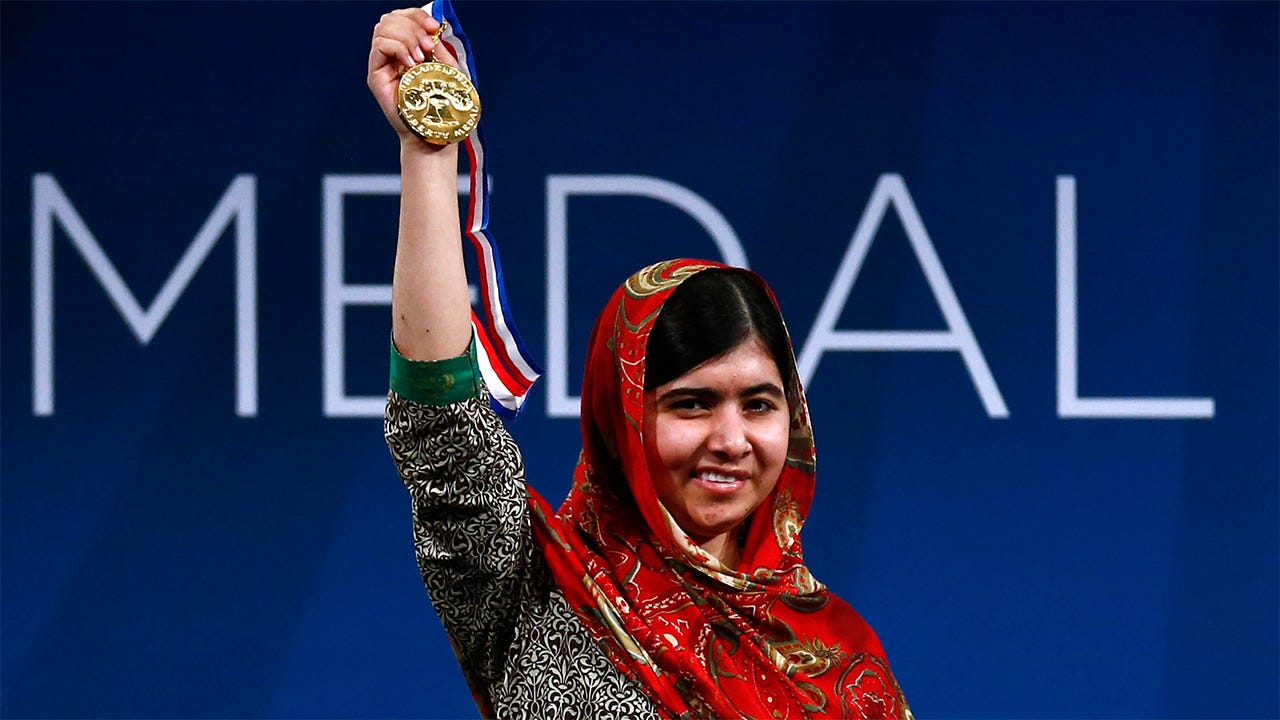On This Day in 2014, Courage Claimed the World’s Attention
Malala Yousafzai’s Nobel Peace Prize Proved That Education Can Be Mightier Than Any Gun
There are moments in history when violence fails to silence its intended victim, instead amplifying their voice far beyond anything they could have achieved alone. On this day in 2014, Malala Yousafzai, a girl once carried bleeding from the back of a battered school truck in the Swat Valley, stood recognised as the youngest recipient of the Nobel Peace Prize.
Her journey had begun long before Oslo, long before the camera flashes and the world leaders lining up to shake her hand. It began on a jolting school commute, on a flatbed truck doubling as a bus through cracked Pakistani roads. It began when a masked gunman demanded to know which one was Malala. It began when courage stayed seated as fear swept through the others.
A bullet intended to silence did not end a life, it ignited a legacy.
Education as Defiance
Malala was not born into privilege or protection. Her power grew from persistence, sharpened by the stubborn belief that books belong in the hands of every child, not just those born male or born elsewhere. When militants banned girls from classrooms, she did not wait for instructions, she wrote. When her words reached the BBC, she did not seek praise, she sought reinforcements.
Her attackers believed terror would end ambition. They failed to understand that conviction, once truly forged, cannot be intimidated. Even as she lay unconscious in Peshawar, then flown to Birmingham with bandages where there should have been laughter, the future was already shifting. Governments hurried to be seen on the right side of history. Journalists prepared tributes before she could even speak again. What they expected was a survivor. What they got was a stateswoman in school uniform.
Power Without Office
Awards often dull when their recipients chase ceremony rather than substance. Malala has never appeared interested in holding power, only in redirecting it. She has spoken with presidents not to endorse them, but to correct them. She met Barack Obama and questioned drone strikes. She dined with royalty yet spoke of poverty. Her United Nations speech was delivered not with trembling humility but with calm command. She addressed global delegates the way a teacher addresses a restless classroom, instructing rather than pleading.
“I am not against anyone,” she once said, “I am here to speak up for the right of education for every child.” It was not the plea of someone seeking sympathy, but the declaration of someone claiming jurisdiction.
It is easy, in comfortable countries, to treat education as a policy issue. In Malala’s world, it was an act of rebellion. Where others flinched, she published. Where others whispered, she stood on stages. She never positioned herself as exceptional. She positioned herself as representative. That humility is not meekness, it is strategy. Heroes who insist they are ordinary invite imitation.
Legacy Still Unfinished
Many tributes freeze Malala at seventeen, smiling with medal in hand. Yet her story did not end in Oslo. It continues in classrooms built under her foundation’s banner, in speeches still delivered with the cadence of someone who refuses to slow for applause, in girls whose names we may never learn stepping into schools because she once stepped onto that truck.
History is often written by generals, monarchs and ministers. This chapter was written by a girl with scars in place of fear. Her Nobel Peace Prize was not given for surviving a bullet. It was given for turning pain into policy, injury into influence, adolescence into authority.
I write often about figures who shaped their times. Malala did something rarer. She forced her time to reshape around her. Nations scrambled not to grant her dignity, but to be seen reflecting it. When she answered that fateful phone call in Birmingham, she was already far more than a symbol. She was proof that leadership does not require age, wealth or office, only purpose.
On this day, I remember not the moment she won, but the moment she refused to be silenced. One placed her in history books. The other ensured she kept rewriting them.


